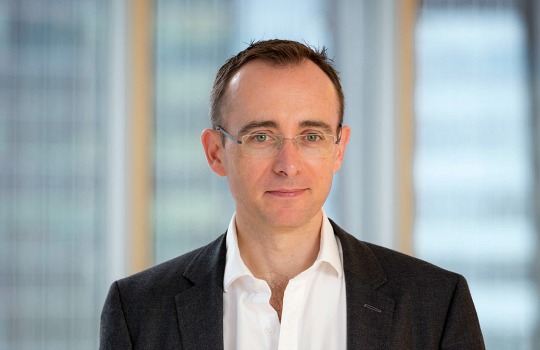
“New market entrants have the ability to create themselves from scratch without the barriers of existing infrastructure or scale…”
FST Media: What are your business and digital priorities for the next 6 months?
Mabbott: AT KPMG Innovate our priority for the next 6 months is to help our clients understand and engage with and respond to emerging business models, new technologies and changing customer behaviour. From a digital perspective, we will also support the firm to evolve our traditional service delivery models through digitally enabled platforms like KPMG Marketplace.
FST Media: What technology or innovation is proving to be the single biggest game changer across the financial services industry?
Mabbott:In many ways it is still the good old fashioned internet and mobility that is having the most impact on the financial services industry. The disruption coming from tech players is reshaping consumer’s expectations across all their service providers – including finance. Looking ahead, the next wave of challenges are likely to be around the integration of emerging tech such as machine learning, blockchain, and augmented and virtual reality.
FST Media: What are the most significant challenges KPMG faces as innovation increases?
Mabbott: The most interesting challenge for KPMG is understanding how large established institutions with legacy products and infrastructure evolve to compete in an environment where clients increasingly expect 24-7 access and personalized meaningful delivery. This is especially important when new market entrants have the ability to create themselves from scratch without the barriers of existing infrastructure or scale.
FST Media: What specific insight does KPMG bring to the wider finance sector in Australia?
Mabbott: KPMG has a strong history of working with financial services clients, so we understand all facets of the landscape: from retail through to institutional services. More recently, we have played a key role in leading thinking around fintech and what it means for both our existing financial services clients and the industry as a whole. Beyond that we have proven ourselves to able to distil insights into tangible outcomes for our clients to enable them to stay at the forefront of change.
FST Media: How can banks and non-traditional financial services work together?
Mabbott: It is first a matter of both sides understanding the mutual benefits. Large players have access to scale, profit and customers, while the new entrants have agility and the ability to pivot rapidly. The shared value proposition is for banks to access innovation, and for the emerging players to access distribution to market.
FST Media: How can traditional financial services continue to develop under the threat of digital disruption?
Mabbott: There are a number of meaningful opportunities for financial intuitions to collaborate with the fintech ecosystem. For example, through fintech hubs like Stone & Chalk, through accelerator programs such as mLabs, and corporate matching services like Matchi. The first step is to understand what disruption is taking place, through research such as the Fintech100 or by accessing bespoke services such as KPMG Innovate’s start-up scanning capability.
FST Media: What can be done across the finance sector to minimise risk and increase Cybersecurity?
Mabbott: Clearly the industry recognizes that cyber is a massive responsibility. It’s a constantly evolving field, so it’s vital to continue to be vigilant. One thing that is important is to encourage the development of a vibrant cyber security start-up ecosystem in Australia which will benefit all.
FST Media: What is the next big thing for KPMG and how will you measure its success?
Mabbott For me personally, it is about how we continue to evolve as an organisation and build a real culture of innovation. I would measure that success is when every partner and staff member is empowered to work with clients in new and different ways, to test and learn, and to use that learning to improve the quality of the organisation as a whole.
FST Media: How do you build a culture of innovation in your team?
Mabbott: There are three areas that I focus on: leadership, diversity and inclusion.
Leadership is making sure that innovation is central to our strategy and the way we operate and that is backed up by the processes, symbols and methods we use – ensuring we walk the talk.
Diversity is fostering a culture that is open to different perspectives and thinking styles. This means having a team which respects different people: dreamers, task orientated people, completer-finishers, numbers people, and critical thinkers.
Inclusion means that the culture has to be for everyone. It cannot be for five people sitting in a corner. It has got to be for the entire organisation as a whole –you cannot exclude anyone.
FST: How do you maintain a good work/life balance?
For me, this is about having ownership of what you do and being able to prioritize the things that are important to you. The trick is to put yourself in a position where you’re doing something that you love – and to find flexibility in how you work so you can meet your personal goals and commitments.





